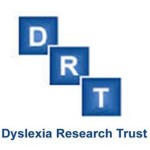This article was provided courtesy of Prof. John Stein and the Dyslexia Research Trust
About Dyslexia
What causes Dyslexia?
There is no single ’cause’ of developmental dyslexia. The way in which dyslexia affects people differs from individual to individual, as do the reasons for the specific difficulties experienced.
Children learn language and literacy skills best when they are young. If they have hearing problems (like ‘glue ear’) during this time, this can affect some children’s language abilities.
Similarly, visual problems when they are learning to read can affect their ability to pick up reading skills. Such visual problems (e.g. unstable or blurred vision) can confuse children and make reading very difficult, but they can often be improved by viewing through yellow or blue filters.

In addition many children have problems translating the letters into the sounds they stand for, because they don’t hear the sounds clearly enough.
The basic cause or causes of developmental dyslexia are not fully understood, and are the major focus of our research. It is an inherited condition, which appears to affect more boys than girls. Clear differences in the way the brain is wired up during development have been found in dyslexics. These may result from abnormalities in a particular class of ‘magnocellular’ nerve cell; possibly due to inheriting genes that make them vulnerable to immune factors during development of the brain and to deficiency of the ‘omega-3’ fatty acids, EPA & DHA that are found in oily fish.
The Dyslexia Research Trust
www.dyslexic.org.uk
The Sherrington Building,
Department of Physiology Anatomy and Genetics,
Parks Road,
Oxford OX1 3PT
Dyslexia Research Trust Clinics
Dr Anna Pitt (OXFORD Diagnostic Clinic)
Dr Sue Fowler (READING Visual Clinic)
Dyslexia Research Trust
179A Oxford Road
Reading
RG1 7UZ
0118 958 5950




















